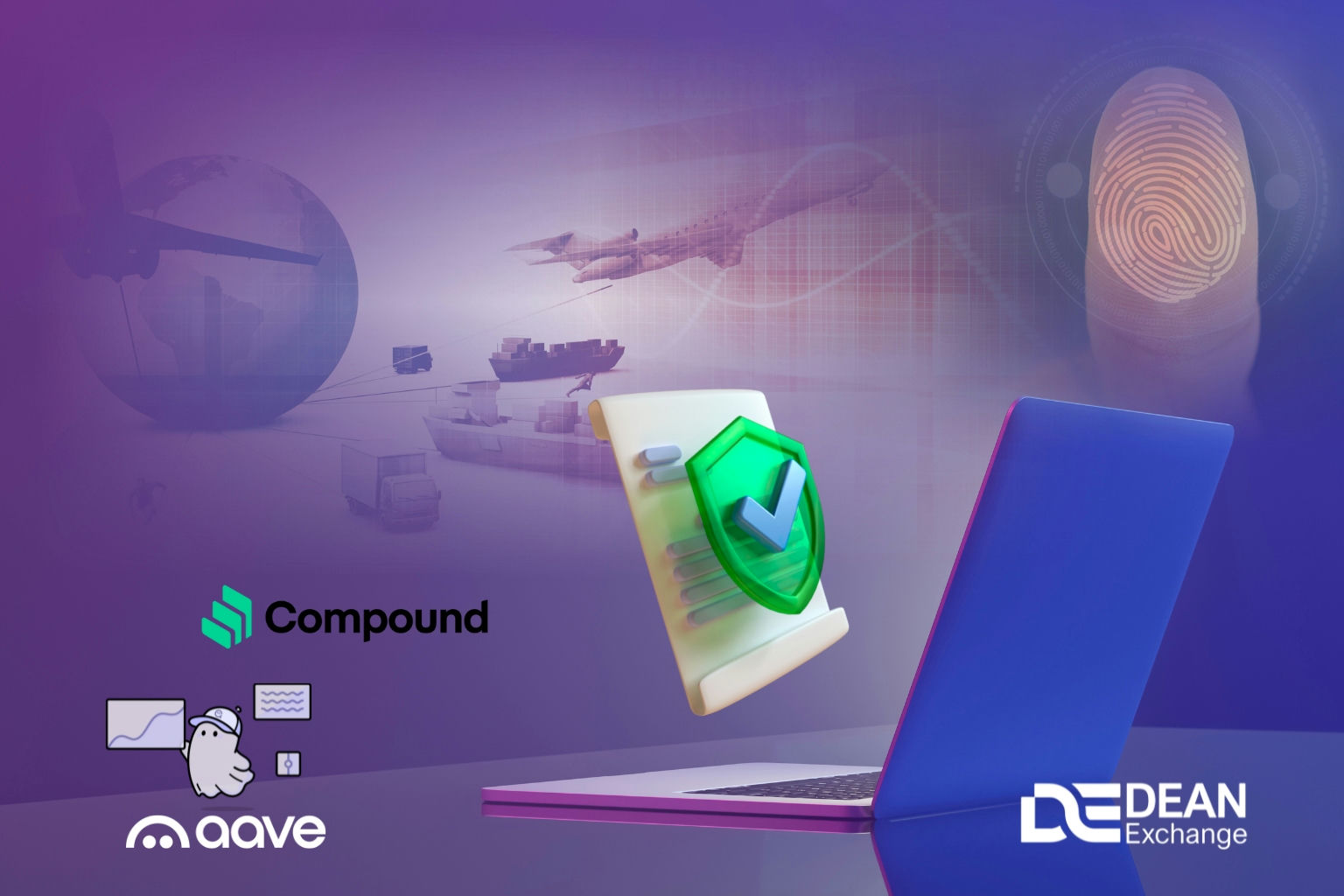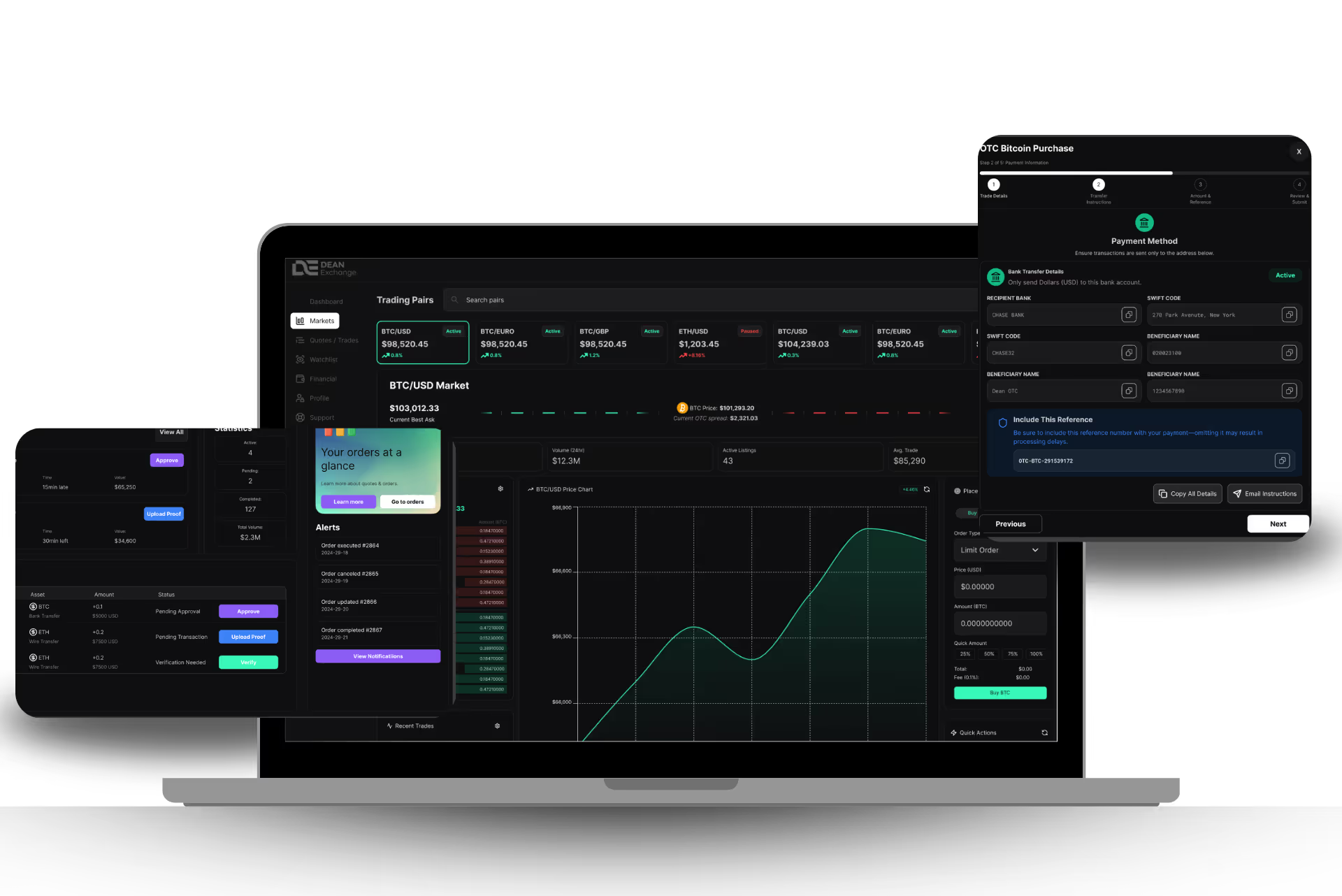By the
This is some text inside of a div block.
This is some text inside of a div block.
•
5
min read

Smart contracts are at the heart of many innovations in the crypto and blockchain space. From decentralized finance to digital identity, they quietly power a wide range of applications. But for beginners, the term can seem vague or overly technical. What exactly are smart contracts? How do they work? And how can you start using or building with them?
In this guide, we’ll break down the essentials of smart contracts in a way that’s simple, professional, and practical—perfect for newcomers and curious learners. Along the way, we’ll explore use cases, benefits, and how Dean Exchange can help you learn through hands-on experiences like live blockchain sessions and step-by-step cryptocurrency tutorials.
A smart contract is a digital agreement that lives on a blockchain. Unlike traditional contracts, it doesn’t require a lawyer, a notary, or a third party to enforce the terms. Instead, the contract’s rules are written directly into code, which automatically executes actions when predefined conditions are met.
In other words, smart contracts are self-executing programs that run on blockchain networks.
Think of a smart contract as a vending machine. You put in the correct amount of money (input), and the machine automatically gives you a snack (output). There's no human operator—just code that does what it's programmed to do.
To understand smart contracts, you need to grasp what blockchain is. At a basic level, a blockchain is a decentralized, digital ledger that records transactions across a network. Once a transaction is recorded, it can't be changed.
Smart contracts live on this ledger. Because the blockchain is decentralized, no single party controls the contract. Once deployed, it operates exactly as written—transparent, secure, and resistant to tampering.
Most smart contracts are written for platforms like Ethereum, Solana, and Binance Smart Chain, all of which support programmable blockchains.
Smart contracts have transformed financial services. They run the logic behind borrowing, lending, staking, and yield farming without a bank or broker. Users interact directly with a decentralized exchange or lending protocol, and the smart contract handles everything—collateral, interest, and repayment.
Example:
Platforms like Aave or Compound use smart contracts to let users lend crypto and earn interest. The entire process is automated and transparent.
When someone mints a non-fungible token (NFT), a smart contract is created. This contract manages the ownership, royalties, and transfer of the digital item.
Example:
An artist can use a smart contract to ensure they receive 10% royalties every time their NFT is resold.
Businesses use smart contracts to automate processes in logistics and inventory. A contract can track a product’s journey and release payments only when goods arrive at their destination.
Smart contracts can manage digital identities, giving users control over their credentials without relying on centralized providers.
Automating processes reduces the time and cost associated with manual intervention. No waiting for bank approvals or legal reviews—smart contracts execute instantly.
Because they run on blockchain technology, smart contracts are highly secure. Every transaction is encrypted and permanently recorded.
Smart contracts reduce human error and minimize the potential for manipulation. Once set, their terms are clear and can’t be changed without consensus.
Before diving into smart contracts, it's important to learn what blockchain is and how it functions. Dean Exchange offers beginner-friendly cryptocurrency tutorials that explain key blockchain concepts and walk you through tools like wallets, tokens, and transaction verification.
Ethereum is the most popular platform for smart contracts, but there are others to explore:
Your choice depends on your goals—whether you're trading, building, or exploring dApps.
You don’t have to be a developer to use smart contracts. When you swap tokens on a cryptocurrency exchange like Uniswap, you're already using one.
Tip from Dean Exchange:
Start small. Try staking a token, minting an NFT, or using a decentralized exchange to swap assets. These are real-world examples of smart contracts in action.
Reading is helpful, but hands-on learning makes it real. Dean Exchange offers live blockchain sessions where experts walk you through real-time contract interactions, wallet usage, and dApp navigation.
These sessions are ideal for beginners who want to see smart contracts in motion and ask questions along the way.
If you’re interested in writing smart contracts, you’ll need to learn Solidity (for Ethereum) or Rust (for Solana). Development environments like Remix make it easy to experiment and test code.
Dean Exchange will be expanding its educational series to include programming tutorials and safe deployment practices for aspiring developers.
In many jurisdictions, smart contracts are being recognized as enforceable agreements—especially when both parties consent and the contract fulfills legal requirements. However, legal interpretations can vary, so it's always best to consult legal advice for high-stakes use.
Smart contracts are only as good as the code written. Bugs or poorly designed logic can cause unexpected behavior. That’s why audits, testing, and trusted protocols matter.
Dean Exchange helps users identify reputable platforms and shares news on protocol updates through its curated cryptocurrency exchange insights.
Smart contracts are a cornerstone of blockchain innovation. They allow systems to operate autonomously, securely, and without unnecessary intermediaries. From decentralized exchanges to NFT royalties, these self-executing programs are reshaping how we think about trust and automation in the digital world.
If you’re just starting your crypto journey, understanding smart contracts will unlock a deeper level of participation in the Web3 economy. And you don’t have to go it alone.
Dean Exchange is your go-to resource for demystifying complex blockchain topics. With cryptocurrency tutorials, expert insights, and live blockchain sessions, we make learning smart, simple, and accessible.


Join our newsletter for exclusive insights, breaking crypto trends, and learning opportunities—delivered straight to your inbox.